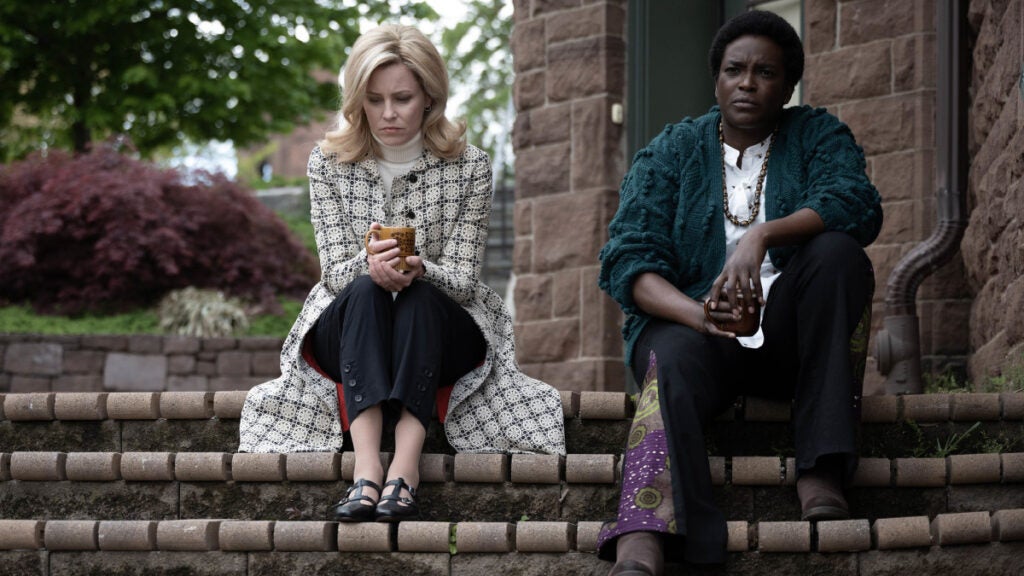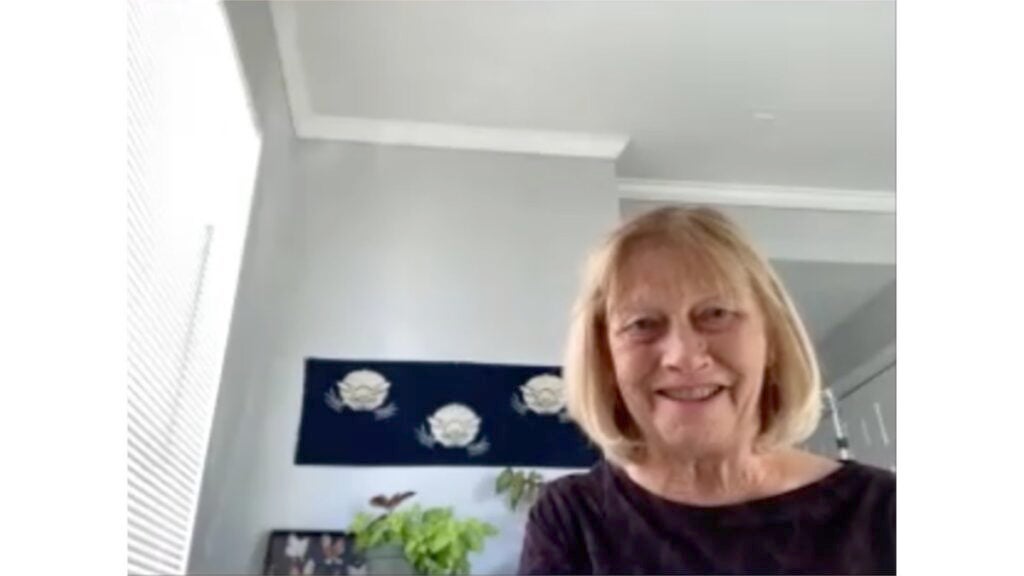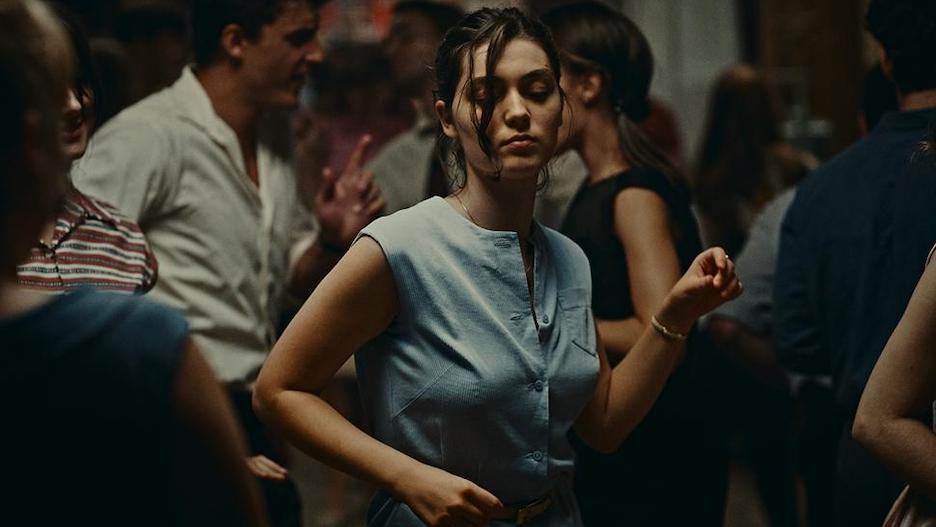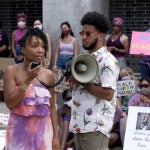Sundance 2022: the films are reminding us what it was like when women did not have the right to choose
“Call Jane” stars Elizabeth Banks and Sigourney Weaver in the story of a suburban housewife named Joy (Banks) who sets out to get an abortion in Chicago in 1968, when the practice was illegal. Joy stumbles into an underground network of women (led by Weaver), known as The Jane Collective, who performed surreptitious abortions for women, illegally, until the Supreme Court legalized the terminations in 1973.
The feature is rooted in history and captures the second-class status that women endured, even in the midst of a civil rights revolution. Joy does not tell her husband (Chris Messina) that she got an abortion (because her pregnancy threatened her life), or that she has signed up with this group of women renegades. Joy ultimately steps out of her passive life as a housewife and mother by learning how to perform the abortion herself and becoming the main “Jane” – while teaching others how to follow suit.
Coincidentally “The Janes,” a documentary in competition by directors Tia Lessin and Emma Pildes, deals with the very same topic. A fascinating companion piece to the feature film, “The Janes” features interviews with many of the real-life Jane Collective members. One of them notes that they went undiscovered for so long because the male-dominated police couldn’t imagine women organizing themselves. “This was a case of men underestimating women’s abilities – it worked very well for us,” she said.
Please stop a moment to take that in: Activist women in the 1960s taught themselves how to administer abortions, and this group performed an estimated 11,000 of them until they disbanded.
Judith Arcana and Diane Stevens were part of the collective, performing abortions and getting arrested when the police finally discovered the group based on a tip from family members of a pregnant woman who opposed her plan to end a pregnancy.
In an interview this weekend at TheWrap studio, Arcana and Stevens said that they didn’t think much about the illegality at the time, or that they risked life imprisonment if they were caught.

“I almost never thought about the risk,” Arcana said. “That sounds simple-minded, but it isn’t that … That just wasn’t what was important.”
Stevens had a similar perspective: “I knew I was doing something illegal all along, and I knew there was possibility of going to jail. I felt so strongly it was what I had to do.” Those beliefs came at a cost. “When we were actually arrested, I was in much better position than other women in that I didn’t have children, I didn’t have a family that would be affected,” Stevens said. “I was willing to face it.”
Sigourney Weaver, in a separate interview at TheWrap’s Sundance studio, remembered the impact of the Roe v. Wade decision on women at the time.
“It was earth-shattering,” she said. “It was like: I can breathe now… Suddenly we were visible. We were able to make decisions about our own bodies. The last thing I ever thought is that we would go backwards to those very sad, desperate days when women had to self-induce.”

It is a useful reminder of what life was like before women had full rights over their bodies. One of the many facts I learned in watching both films was that oral contraception, once invented, was only legal in that era for married women. A brain-twister to the contemporary mind. Also women turned to the Mafia to get illegal abortions, giving an even more sinister cast to the nightmarish back-alley nature of the procedure.
Yet another incredibly affecting film, “Happening,” in the Spotlight section of the festival, tells the story of a university student in France in the late 1960s who gets pregnant and wants an abortion. The film, written and directed by Audrey Diwan (based on a book), is strikingly similar in theme to “Call Jane,” as the talented literature student Anne (played by Anamaria Vartolomei) insists that she must get an abortion and seeks a solution in every possible avenue.
The film is very tightly shot, mainly in close-up on Anne’s face, insisting on presenting this story through the eyes of a determined young woman who will not have her life derailed. “The loneliness of the character moved me,” Diwan told me in an interview at TheWrap’s Sundance studio, as she spoke remotely from Paris. “And I decided I wouldn’t make the piece on legal abortion, but more about this character — the way she wants to be free, the way she wants to have sexual pleasure, and do her studies.”
“It nourished in me a certain anger,” Vartolomei said. “Everything went from that anger. I put myself in the place of this young lady…. I couldn’t imagine that there is still a world where a girl has to choose between her life, her career. I just wanted to bring out the determination in my character and give her justice.”

In Europe abortion, is not under immediate legal threat as it is in the U.S. — but it is under pressure. Poland adopted a near-total ban on abortion a year ago. And the current head of the European Union is Polish.
“Aftershock” is another film in the festival related to women’s rights and maternity. In this case, it’s not abortion under scrutiny but the substandard care provided to women of color during their pregnancies, leading to sky-high rates of Caesarean section births and infant mortality, compared to white women. While this film is not about the right to choose, it is most certainly about the rights of women – especially women of color – being subordinated to other priorities when it comes to health.
For so many of the women I interviewed in the first days of the festival, the topic of women’s health care access is animating their lives as they are watching the slow-moving end to Roe with dread.
That includes me. Watching these films catapulted me into actively imagining life after Roe crumbles. I discovered that it is something of an out-of-body feeling — being in a country where the government is prepared to take away a right you have had for 50 years. Where the government gets to tell you when and how to have a child.
“I felt like this was very recent history,” Banks said of her involvement in “Call Jane.” “I was born in 1974. … Choice is something that I feel is elusive in this moment in time. One of the reasons I wanted to get involved is the women in this story – everything they cared about mattered. We need to tell more of those.”
Their films remind us of what our future as women looks like: the past. A time when mostly men made the rules, when women’s sex lives were something to be controlled and when having sex was something that apparently needed to be punished.
It also reminds us of an important reality: Regardless of the imminent threat to abortion rights in the Supreme Court, women will not stop needing abortions or seeking them out. “You don’t have to imagine what it was like,” “Jane” director Pildes said. “This is what it was like. The fear. The isolation. You can see it on the screen.”


